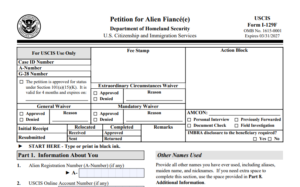In the EB-5 Reform and Integrity Act of 2022 (“RIA”), the definition of “Capital” as an investment for EB-5 has been updated. Capital includes cash, as well as any real, personal, or mixed tangible assets that are owned and controlled by the investor and which are invested in, or contributed into, the business. Capital can also be assets held in trust for the investor, provided the investor has unrestricted access to them. This guarantees that the funds are accessible for investment purposes and job creation.
Capital must be evaluated using Generally Accepted Accounting Principles (GAAP) or other SEC-adopted standard accounting procedures at the time of investment, at fair market value in U.S. dollars. This guarantees uniformity and openness in the investment’s appraisal.
The definition of capital excludes several types of assets:
- Unlawfully acquired assets: Any funds or assets obtained through illegal means are not considered valid capital.
- Debt investments: Capital invested in exchange for loans, bonds, or other debt arrangements from the business is excluded, as the EB-5 program requires an equity investment rather than a debt (i.e. the investor is not loaning the Capital to the business).
- Guaranteed returns: Capital that is invested with a guaranteed return or any debt-related repayment agreement, as above, given back to the investor does not qualify. The EB-5 program is meant to support investments that carry entrepreneurial risk. The potential for gain, such an interest from a loan in which the investor’s Capital has been deployed, is acceptable as long as it is not guaranteed. In other words, there must also be a risk that the interest is not earned and then paid to the investor.
- Repayment rights: Any capital that is subject to agreements providing the investor with a contractual right to demand repayment (such as mandatory redemption or a put/sell-back option) is also excluded.
- Some benefit of value: The investor must also be careful not to receive any benefit of value which might be deemed a guaranteed return on his investment. For example, the promise of free hotel stays at a developer’s related property could be deemed such a guaranteed return.
However, Capital invested in a business with a buyback option may still qualify if the option can only be exercised at the discretion of the New Commercial Enterprise, and without guaranteeing the return of a fixed amount of investment Capital. If made before an investor completes his EB-5 process, this provision must result in the investor withdrawing their petition unless they meet all other EB-5 process requirements, such meeting the investment Sustainment Period.
If you have question about the EB-5 visa, contact us at info@enterlinepartners.com.
ENTERLINE & PARTNERS CONSULTING
Ho Chi Minh City, Vietnam Office
146C7 Nguyen Van Huong St, Thao Dien Ward,
District 2, Thu Duc City
Ho Chi Minh City, Vietnam
Tel: +84 933 301 488
Email: info@enterlinepartners.com
Facebook: Enterline & Partners – Dịch vụ Thị thực và Định cư Hoa Kỳ
YouTube: @EnterlineAndPartnersConsulting
Website: http://enterlinepartners.com
Manila, Philippines Office
LKG Tower 37th Floor
6801 Ayala Avenue
Makati City, Philippines 1226
Tel: +63 917 543 7926
Email: info@enterlinepartners.com
Facebook: Enterline and Partners Philippines
Website: https://enterlinepartners.com/language/en/welcome/
Copyright 2025. This article is for information purposes only and does not constitute legal advice. This article may be changed with or without notice. The opinions expressed in this article are those of Enterline and Partners only.








